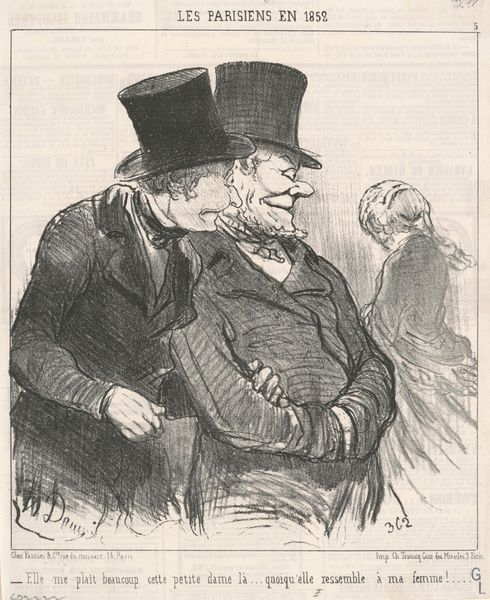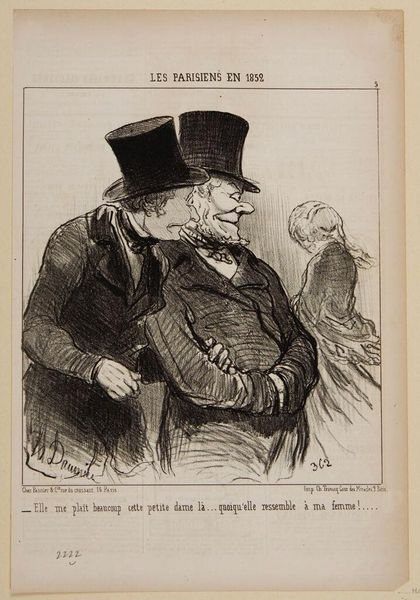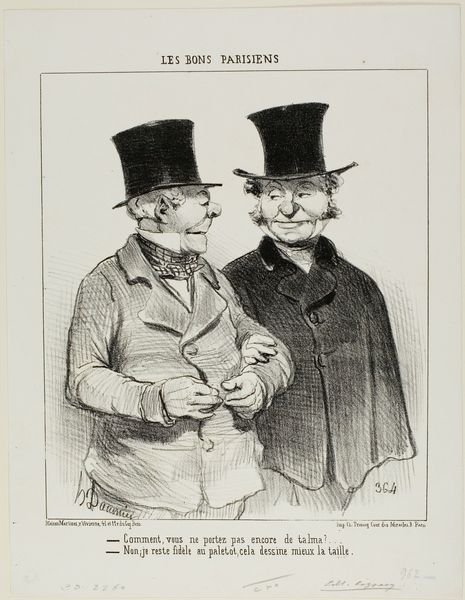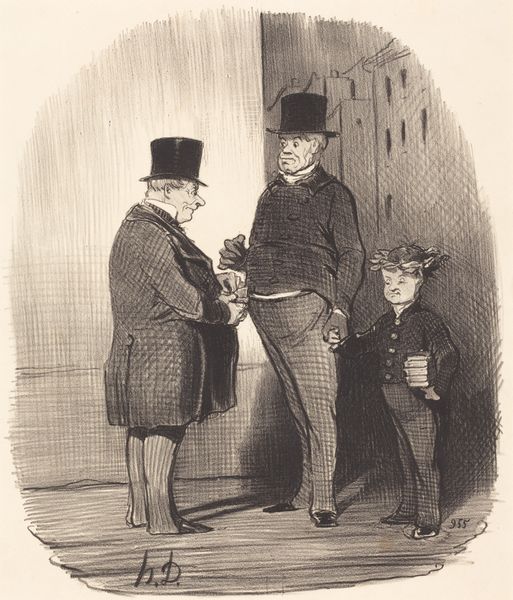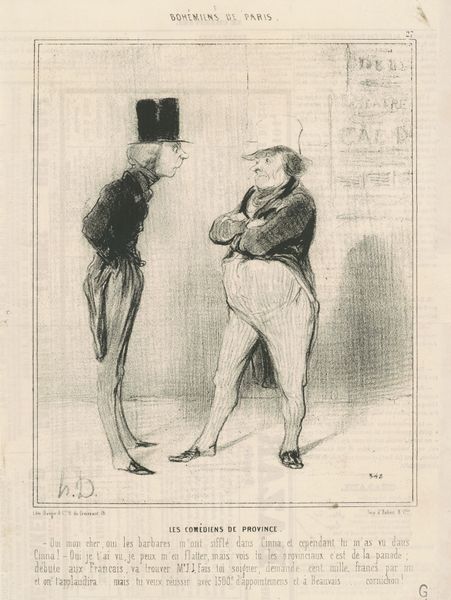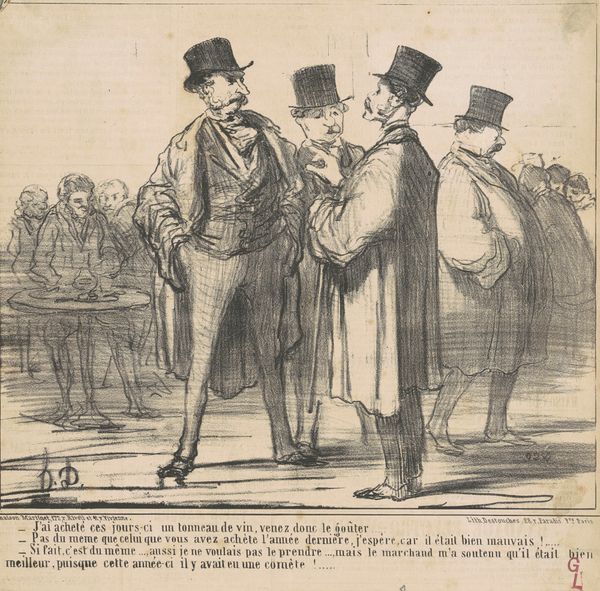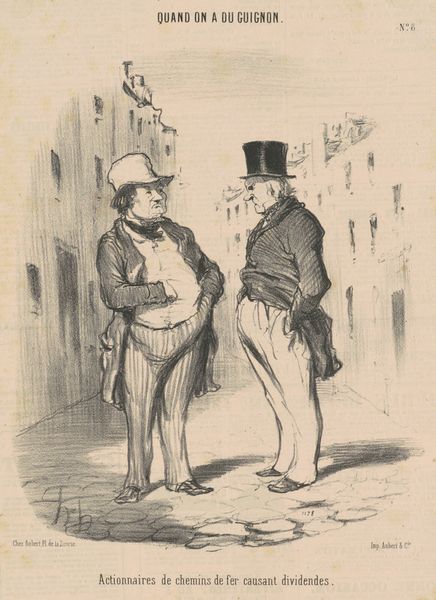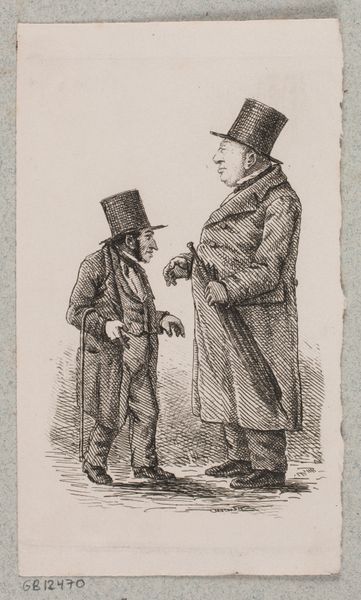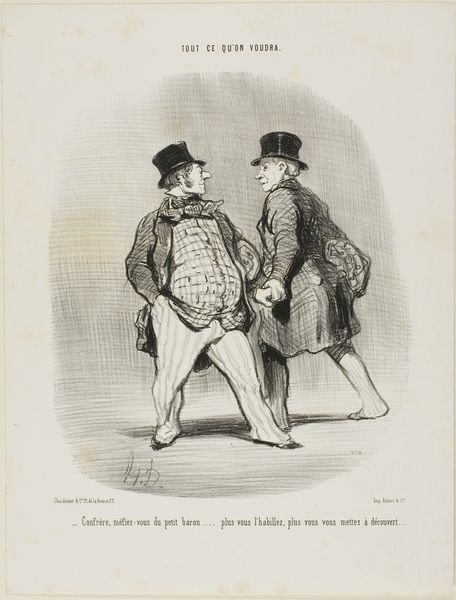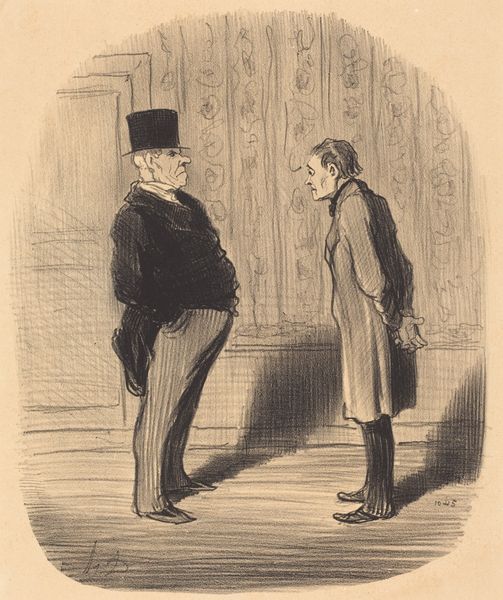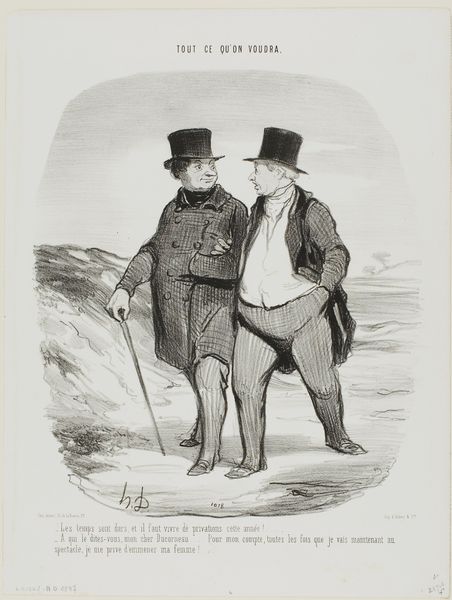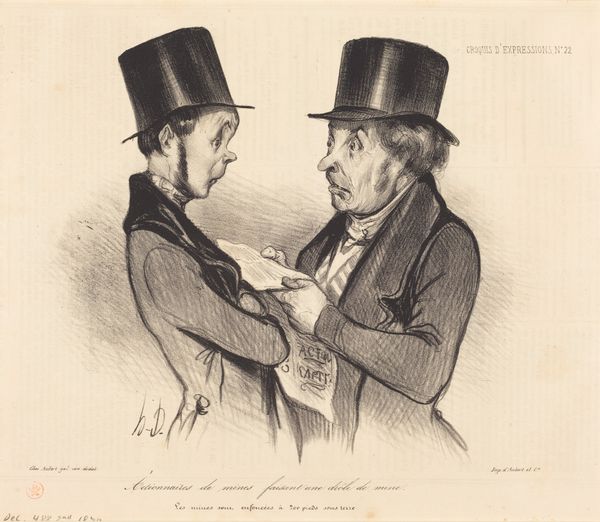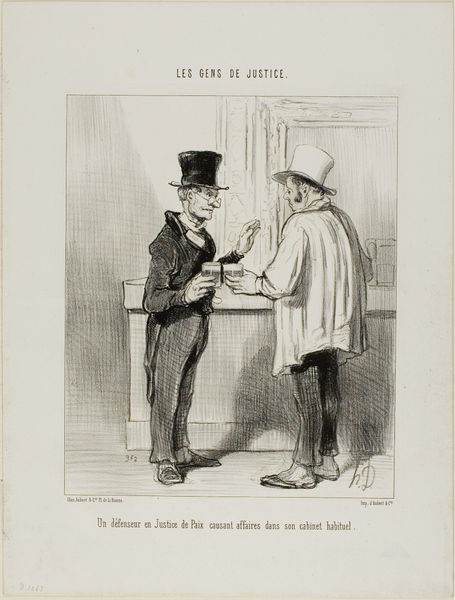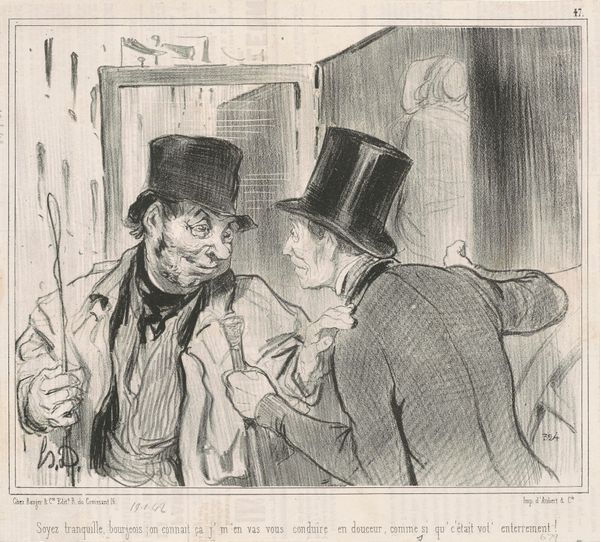
lithograph, print
#
portrait
#
lithograph
# print
#
caricature
#
romanticism
#
genre-painting
#
history-painting
Copyright: National Gallery of Art: CC0 1.0
Editor: This is Honoré Daumier's lithograph "Les Cigarettes de camphre," made in 1845. I’m struck by how sharply the two figures are contrasted – one so thin, almost gaunt, and the other so stout. What commentary do you think Daumier is offering here? Curator: It’s a pointed observation, isn't it? Daumier was deeply engaged with the socio-political landscape of 19th-century France. Caricature was his weapon. Consider the caption, it says something along the lines of being certain of being great at making people gain weight... but also that the cigarette makes you lose weight! Think about the period: The rise of the bourgeoisie, anxieties about health, class, and appearances were pervasive. Daumier exploits visual language to mock the obsessions of his time. How does this work speak to power dynamics? Editor: Well, the contrast in body types suggests a disparity, maybe a criticism of the excesses of some and the deprivations of others. But both figures seem complicit in a sort of absurd social performance. Curator: Exactly! And what about the ‘camphre’ cigarettes themselves? Think about the promises, the elixirs, the quack remedies marketed then. Daumier subtly critiques how easily people were swayed by the illusion of quick fixes, masking deeper inequalities with superficial cures. Are those inequalities still prelevant nowadays? Editor: Absolutely. The artwork definitely has interesting connections with contemporary culture and politics. It's funny, but there's something unsettling about the critique that resonates even now. Curator: Indeed. It’s a potent reminder of how art can unmask the ironies embedded in social structures and individual behaviors. The power of satire persists because these follies continue to find new forms. Editor: Thanks, I'm taking away the reminder that art often holds a mirror up to society’s anxieties and shortcomings.
Comments
No comments
Be the first to comment and join the conversation on the ultimate creative platform.
